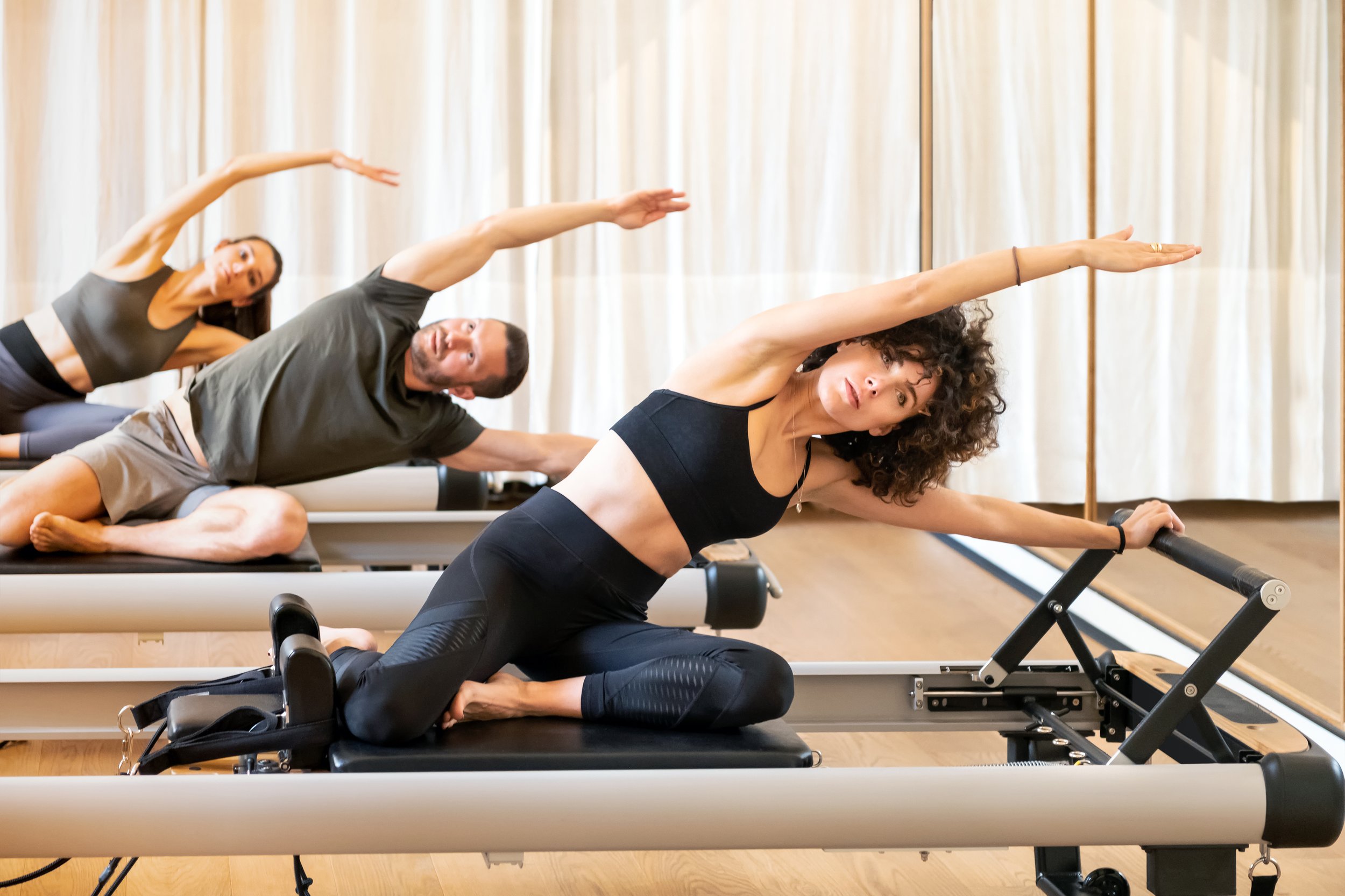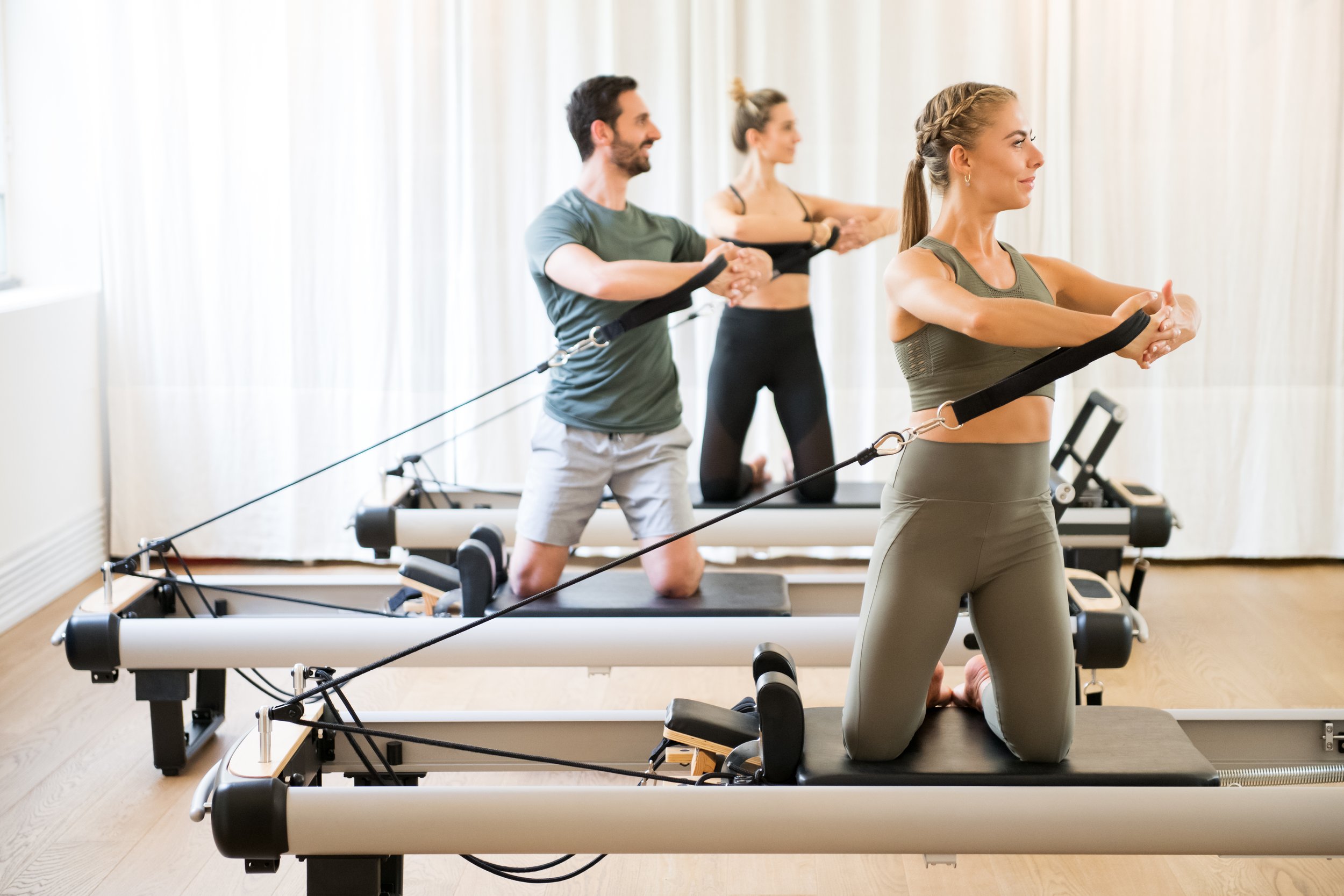
Clinical Reformer Pilates
Create Balance from the Inside, Out
Clinical Reformer Pilates targets individual problem areas through focused rehab and injury prevention and uses machines to create different levels of resistance and provide additional support.
Pilates is about working to strengthen the muscles that keep your spine, pelvis and hips stable, which in turn allows you to move with control and balance. Pilates allows you to improve your breathing patterns, posture, flexibility and mobility, all while being one of the safest forms of exercise available- Just about anyone can do it, regardless of age or fitness level.

Key Benefits for Clinical Reformer Pilates:
Benefits of Clinical Pilates treatment programs include:
Development of core muscle control for the improvement of lower back, upper limb and lower limb complaints;
Improved core stability and posture;
A preventive measure to avoid further of injuries of the back, upper and lower limbs;
Restoration of normal movement patterns;
Assists pre-operative and post- operative rehabilitation;
Pain management;
Increased flexibility and strength;
Enhanced coordination and muscular control;
Improved body symmetry, balance and body tone; and
General health and well-being.
Clinical vs Studio Pilates
The first major difference is that Clinical Pilates reformer classes are run by fully qualified Physiotherapists, not Pilates Instructors. This means that not only does your Instructor have 4 years of university training in anatomy, physiology and injury management, they are also trained in what is known as “clinical reasoning”. This means that they are fully qualified and highly trained to assess you and establish which particular type of exercise is suitable for your injury or condition, whether that be lower back pain, shoulder pain, a medical illness or pregnancy. Your Physiotherapist will also be able to modify your exercise program to account for flare-ups or changes in your injury on a particular day or week. Hence, your Clinical Pilates program is specifically tailored to meet your needs.
The second major difference is the class size. Clinical Pilates classes are usually kept to a maximum of 3 or 4 people per group, ensuring that you receive adequate supervision and attention, in order to monitor technique and prevent injury. Gym classes often have 10-12 people in a class, sometimes up to 20! It is impossible for the instructor to monitor technique and also modify exercises for the individual. When using any piece of exercise machinery whether it be a reformer or gym machine, correct technique is essential otherwise injuries can occur. It can be very difficult to monitor each person closely in bigger class sizes, which is why classes are kept small.
You don’t need to have an injury to attend Clinical Pilates classes, many people attend classes to keep fit and healthy, enjoying the personalised attention that a small class size allows. It gives them peace of mind to know that they are performing the exercises correctly under qualified supervision. Clinical Pilates improves core strength, changes your body shape, assists with posture and alignment, and provides a safe way to tone the whole body.
